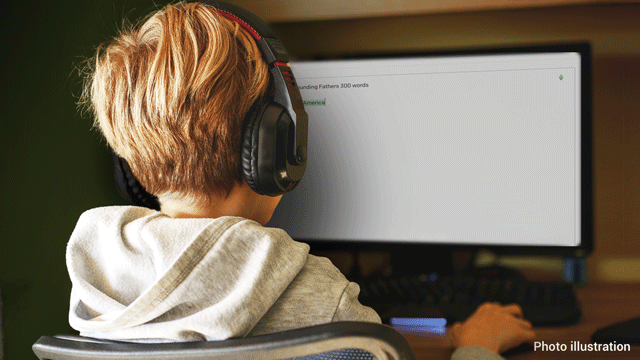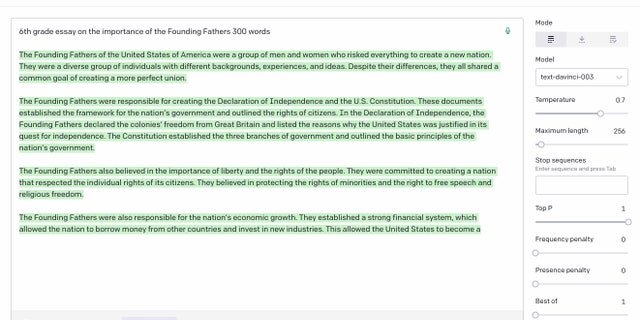
Adding more technology to classrooms has hurt students more than helped them, a former teacher said amid speculation about the effects artificial intelligence will have on education.
“We introduce a lot of technology in the classrooms to correct problems that we see, and inevitably we end up causing more problems with the solution,” Peter Laffin, the founder of Crush the College Essay and a writing coach, told Fox News. “Often the cure is worse than the disease.”
EDUCATOR EXPLAINS HOW TECHNOLOGY MAY HURT EDUCATION: WATCH HERE
WATCH MORE FOX NEWS DIGITAL ORIGINALS HERE
Last week, tech company OpenAI unveiled an AI chatbot, ChatGPT, which has stunned users with its advanced functions like generating school essays for any grade level, answering open-ended analytical questions and writing jokes, poems and even computer code. The internet is swirling with predictions about the implications of this sophisticated technology, but at the forefront of Laffin’s concern is the impact it will have on education.
“I personally think that we should be restricting all sorts of technological tools, and this one I think for a very particular reason,” said Laffin, who was an English teacher of over 10 years. “We want to make sure that we’re teaching kids, not just the subject but also values.”

A mock essay prompt inputted into OpenAI’s ChatGPT shows student’s as young as middle school age can take advantage of this new technology.
(OpenAI)
EXPERTS REACT TO US MATH, READING SCORES DIPPING FOR STUDENTS AFTER COVID-19: ‘DISMAL’
Laffin fears the ability of students to use AI to complete assignments will further impact an already struggling U.S. education system.
Pandemic-related remote schooling took a toll students across the U.S., with 2022 national test scores showing the largest decrease ever in math scores, while reading scores dropped to the lowest levels since 1992 for fourth and eighth graders, according to the Nation’s Report Card.

Former English teacher Peter Laffin said more technology in classrooms ends up causing more problems than it helps.
(Photo illustration)
CLICK HERE TO GET THE FOX NEWS APP
“We introduced a lot of technology to education to make our lives easier. We’ve been doing that steadily for 20 years,” Laffin said. “I think educators would do well to ask themselves, ‘how did any of this benefit us? Are our kids more educated now that there is an iPad for every student in every classroom?’”
“If we can’t say that’s been a net positive, why on earth would we encourage the use of these technologies going forward?” he added.
To watch Laffin’s full interview, click here.
Ramiro Vargas contributed to this report.

 Latest Breaking News Online News Portal
Latest Breaking News Online News Portal




